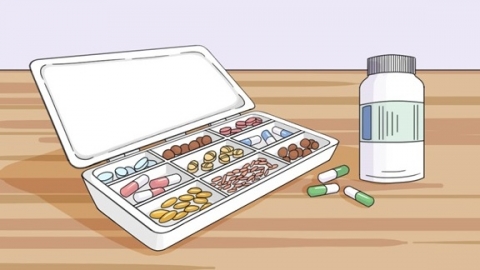The three best medications for lowering blood sugar
There is no such thing as the "three best blood glucose-lowering medications." Commonly used effective medications for lowering blood glucose include Metformin tablets, Acarbose capsules, Glimepiride tablets, Liraglutide injection, and Dapagliflozin tablets.

1. Metformin Tablets: This medication is the foundational treatment for type 2 diabetes. It primarily lowers blood glucose by inhibiting hepatic glycogen output and enhancing glucose uptake and utilization in peripheral tissues. It is especially suitable for obese or overweight patients. It can be used alone or in combination with other antidiabetic drugs and commonly causes gastrointestinal side effects.
2. Acarbose Capsules: This medication belongs to the class of α-glucosidase inhibitors. It delays the intestinal absorption of carbohydrates, thereby reducing postprandial blood glucose peaks. It is suitable for patients whose staple food is carbohydrates and who experience significant post-meal blood glucose elevation. It may cause gastrointestinal discomfort such as bloating and increased flatulence. Use with caution in patients with abnormal liver function.
3. Glimepiride Tablets: This medication is a sulfonylurea secretagogue that lowers blood glucose by stimulating insulin secretion from pancreatic β-cells. It has a strong glucose-lowering effect and is suitable for patients with type 2 diabetes who still have some pancreatic function. Hypoglycemia risk should be noted, and weight gain may occur with long-term use. Use with caution in patients with impaired liver or kidney function.
4. Liraglutide Injection: This medication belongs to the GLP-1 receptor agonists. In addition to promoting insulin secretion and inhibiting glucagon secretion, it also delays gastric emptying and suppresses appetite, offering the additional benefit of weight reduction. It is suitable for patients with type 2 diabetes combined with obesity or high cardiovascular risk. Common gastrointestinal side effects include nausea and vomiting.
5. Dapagliflozin Tablets: This medication is an SGLT2 inhibitor that lowers blood glucose by promoting urinary glucose excretion. It works independently of insulin and offers additional benefits of weight loss, blood pressure reduction, and improved cardiovascular outcomes. It is suitable for patients with type 2 diabetes but may increase the risk of genitourinary infections. Contraindicated in patients with severe renal impairment.
Each medication has specific indications, contraindications, and side effects. Therefore, before starting any drug therapy, patients with diabetes should undergo a comprehensive evaluation by a qualified physician and use the medication under medical supervision.




